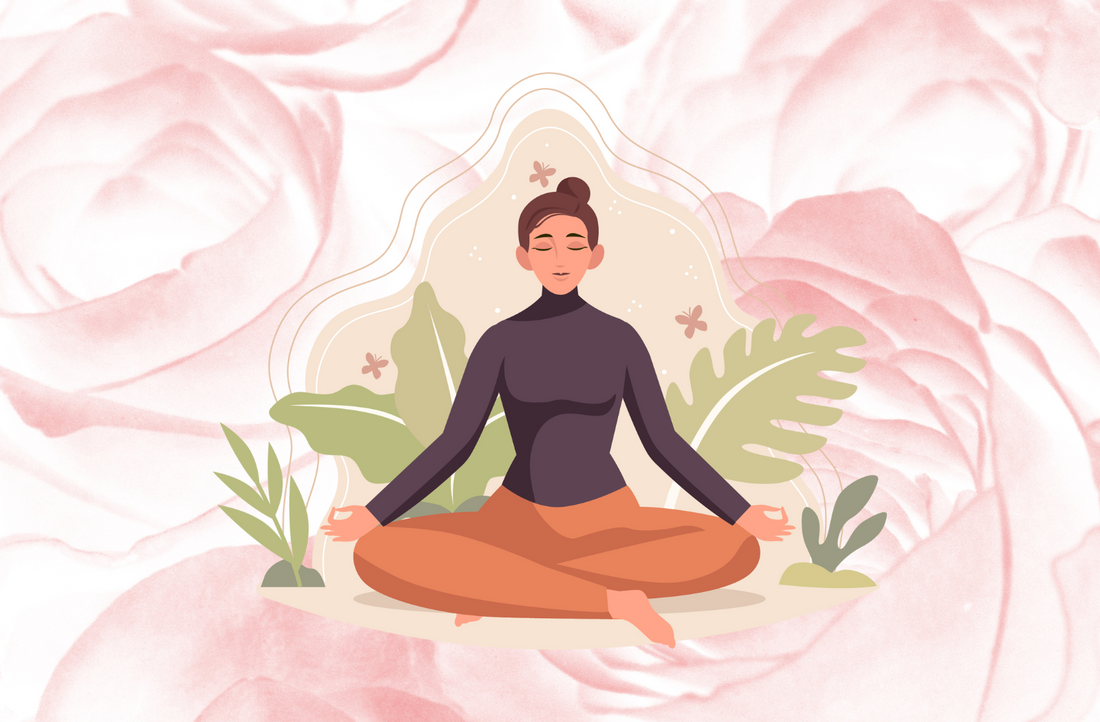
Pre Menstrual Syndrome (PMS) and Ayurveda
Let's begin by exploring the biology of premenstrual syndrome (PMS) and how Ayurveda understands it.
What is PMS?
- Premenstrual syndrome (PMS) refers to a set of physical and emotional symptoms that occur in the days leading up to a woman’s menstrual period.
- These symptoms can vary widely, affecting some women mildly and others more intensely.
- Approximately 3 out of 4 menstruating women experience some form of PMS.
Premenstrual syndrome (PMS) is influenced by a combination of factors. Let’s explore the key contributors:
- Hormonal Fluctuations:
- PMS symptoms arise due to hormonal changes during the menstrual cycle.
- Estrogen and Progesterone: These hormones fluctuate throughout the month.
- Estrogen levels rise before ovulation and drop afterward.
- Progesterone levels increase after ovulation.
- These hormonal shifts can impact mood, energy, and physical well-being.
- Brain Chemicals (Neurotransmitters):
- Serotonin: A neurotransmitter that affects mood, appetite, and sleep.
- During PMS, serotonin levels may decrease.
- Low serotonin is linked to mood swings, irritability, and food cravings.
- Gamma-Aminobutyric Acid (GABA): Regulates anxiety and stress.
- Reduced GABA levels during PMS can lead to anxiety.
- Endorphins: Natural painkillers and mood enhancers.
- PMS may alter endorphin levels, affecting pain perception and mood.
- Inflammation and Immune Response:
- Some studies suggest that inflammation plays a role in PMS.
- Immune system changes may contribute to symptoms like bloating and breast tenderness.
- Genetics and Individual Differences:
- PMS susceptibility varies among women.
- Genetic factors influence how hormones and neurotransmitters interact.
- Some women are more sensitive to hormonal fluctuations.
- Lifestyle and Stress:
- Stress: Chronic stress worsens PMS symptoms.
- Diet: High salt intake may lead to fluid retention.
- Caffeine and Alcohol: These can exacerbate symptoms.
- Exercise: Regular physical activity may alleviate PMS.
- Psychosocial Factors:
- Emotional Stress: Anxiety, depression, and life events impact PMS.
- Social Support: Strong social networks may mitigate symptoms.
Remember, PMS is common, and understanding its causes helps manage symptoms effectively. 🌸
There are a number of aspects of Ayurveda that can be useful in managing premenstrual syndrome (PMS). Let's explore some of these aspects:
- Tridosha Imbalance:
- Ayurveda believes that PMS symptoms vary based on the underlying imbalance of the three doshas: Vata, Pitta, and Kapha.
- Each dosha manifests distinct symptoms during the premenstrual phase.
- Types of PMS and Their Symptoms:
- Vata-Type PMS:
- Symptoms: Anxiety, nervous tension, mood swings, feeling “spaced out.”
- Recommendations: Grounding practices, warm nourishing foods, and calming herbs.
- Pitta-Type PMS:
- Symptoms: Anger, irritation, intensity.
- Recommendations: Cooling foods, relaxation techniques, and stress reduction.
- Kapha-Type PMS:
- Symptoms: Lethargy, heaviness, water retention.
- Recommendations: Light exercise and warming spices.
- Herbal Remedies:
- Ginger: Anti-inflammatory properties help control bloating.
- Ginkgo Biloba: Improves blood circulation and reduces fluid retention.
- Lifestyle Changes:
- Stress Reduction: Stress worsens PMS. Practice relaxation techniques.
- Diet Modifications: Reduce salt, include calcium-rich foods, and maintain stable blood sugar levels.
- Exercise: Regular physical activity supports overall well-being2.
An important point to remember about Ayurveda is that it emphasizes holistic approaches tailored to the nature of each individual.

